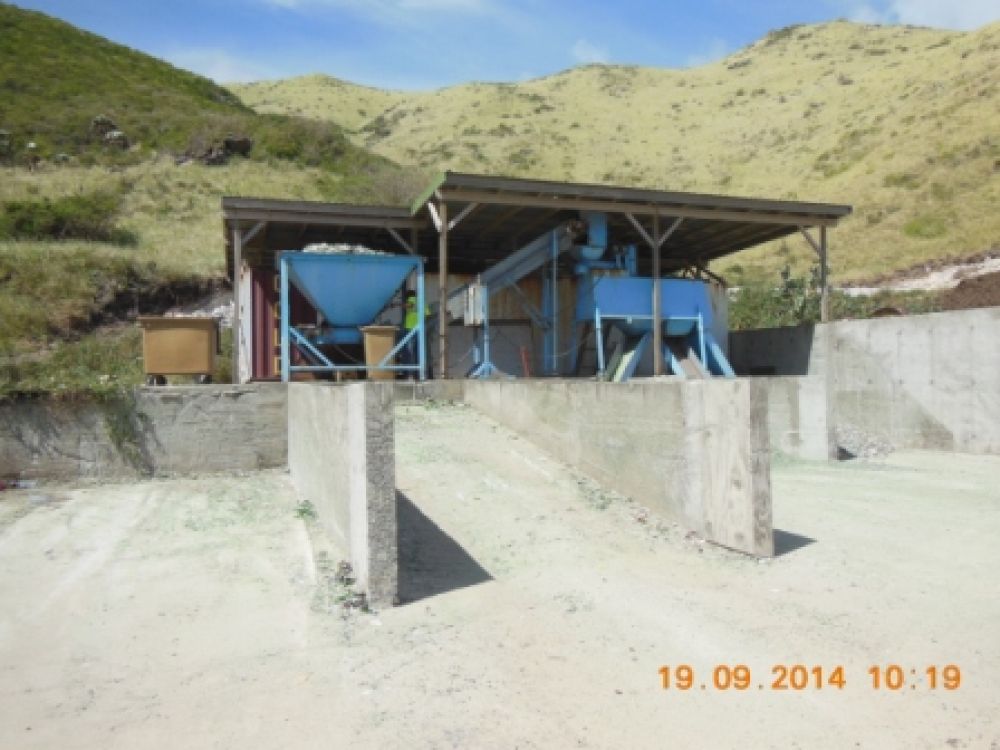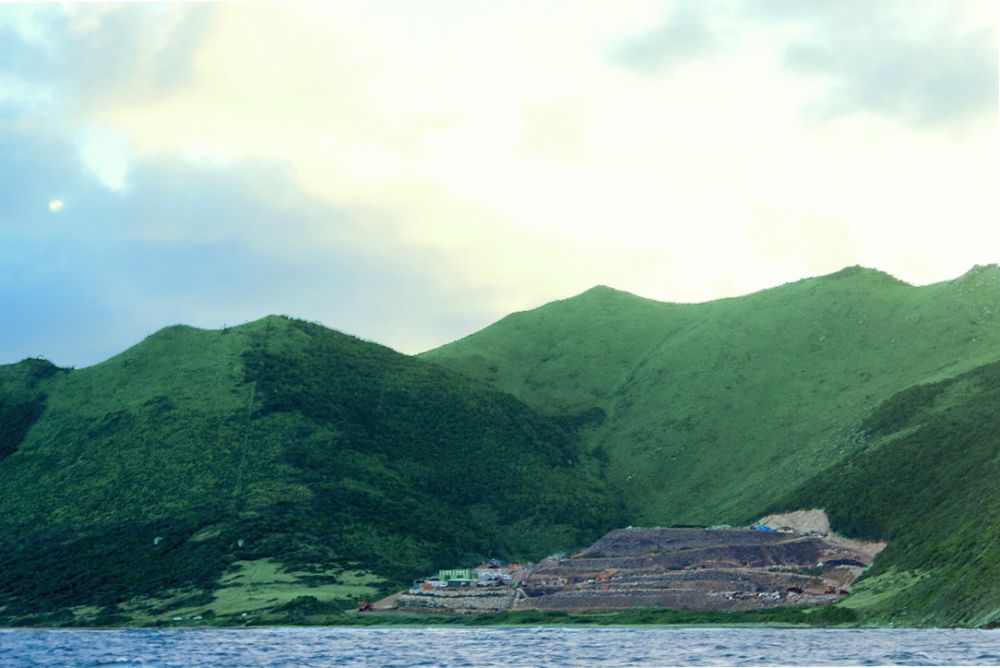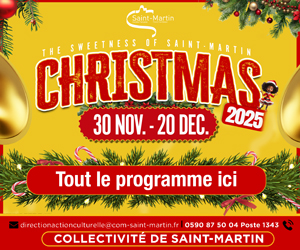How to make waste management profitable ?
"Ten years ago, sorting consisted in burning waste in a hole," said Patrick Villemin, the Director of Verde Sxm. Since 2006, the company has been operating the Grandes Cayes site and manages all the waste on the French side of the island. It has fifteen employees, mostly people from Saint-Martin. Today, two types of waste are recycled at the site: waste from green spaces to make compost (Swalighumus), and glass which is crushed and transformed into transparent gravel (Swaliglass). The rest is generally sent to Europe directly or indirectly. And household waste (black trash can) is buried on the island. Waste oils are sent near Le Havre, while the contents of the yellow trash cans (plastic, cardboard, etc.) are sorted in Guadeloupe prior to being transported to France and elsewhere. As for scrap metal (bicycles, sheet metal, end-of-life vehicle parts…), it is first routed to the Dutch side, and then to Spain. For the first time, large cardboard boxes are being sent to China. Cables are taken to the North of France at the market price.
The difficulty is to find a network for recycling the waste. "In mainland France, buyers are interested because there are large quantities. But Saint-Martin is very small. This requires a great deal of diplomacy so that, despite its size, Saint-Martin does its part" explained Patrick Villemin. With insufficient volumes, you don’t make a lot of money from recycling. Some sectors are not profitable at all: transporting scrap metal costs 150€/ton, and is sold at a price of 140€/ton. Others have collapsed. This is particularly the case for motor oil manufactured from petroleum. When the price for a barrel was $110, waste oil was purchased at 200 € per ton. Today, the barrel has dropped to $30, and no one cares any more about recycled oil. The ADEME supports the sector by increasing its subsidies.
HUGE INVESTMENTS
From a strictly economic point of view, recycling on the island is therefore not very profitable. It works because Verde SXM recycles all of the recoverable waste and one activity compensates for another. This necessarily leads to a few obligations: “I cannot refuse to treat any type of waste". From an environmental point of view, the benefit is debatable since shipping the waste requires fuel consumption. A paradox that Patrick Villemin has noticed himself while acknowledging: "If the waste is not recycled, its quantity will increase, and then we’ll be faced with space and local pollution issues." He pointed out the fact that a litre (.26 gal) of oil disposed on the ground sustainably pollutes 1m3 of soil and that we produce 80 m3 of waste oils a year in Saint-Martin. For him, urging people to recycle leads them to reducing their quantity of waste. This is a virtuous circle that raises the consumer’s awareness.
All of the activities of the site are closely supervised and comply with the environmental code. The company has received an authorization from the Prefecture for its recycling activity. It is under contract with the Collectivité for the burial of household waste. Therefore, the whole site is fully authorized. "We manage to make a living since we are here, but it was very difficult to set up," said Patrick Villemin before adding: "It took a huge investment on our part for the recycling (and on the part of the Collectivité for the storage) with significant subsidies from the ADEME and FEDER".
INCREASE THE VOLUMES
In all, the company has received about 45 % in subsidies to pay for some of the equipment and none for the establishment, but it receives indirect aid in order to operate. For the collection of end-of-life vehicles, for example, the Collectivité will pay for the transportation of wrecked cars to the site until July and the ADEME finances the recycling so that it is free for the user. Patrick Villemin calls this the "transfer of funding." In March, there were therefore about 60 end-of-life vehicles which were recycled. "Our goal is 80 per month" stated the director who also believes that we need to find innovative ideas to improve waste management. "We are always looking for a better solution so that the sector is more profitable and durable. We only work with recyclers who are well established and registered companies: the ISO 1401 standard necessarily rules out shady characters" he said. The company, whose activity is still limited, now aims to increase the volumes of waste to be recycled.












